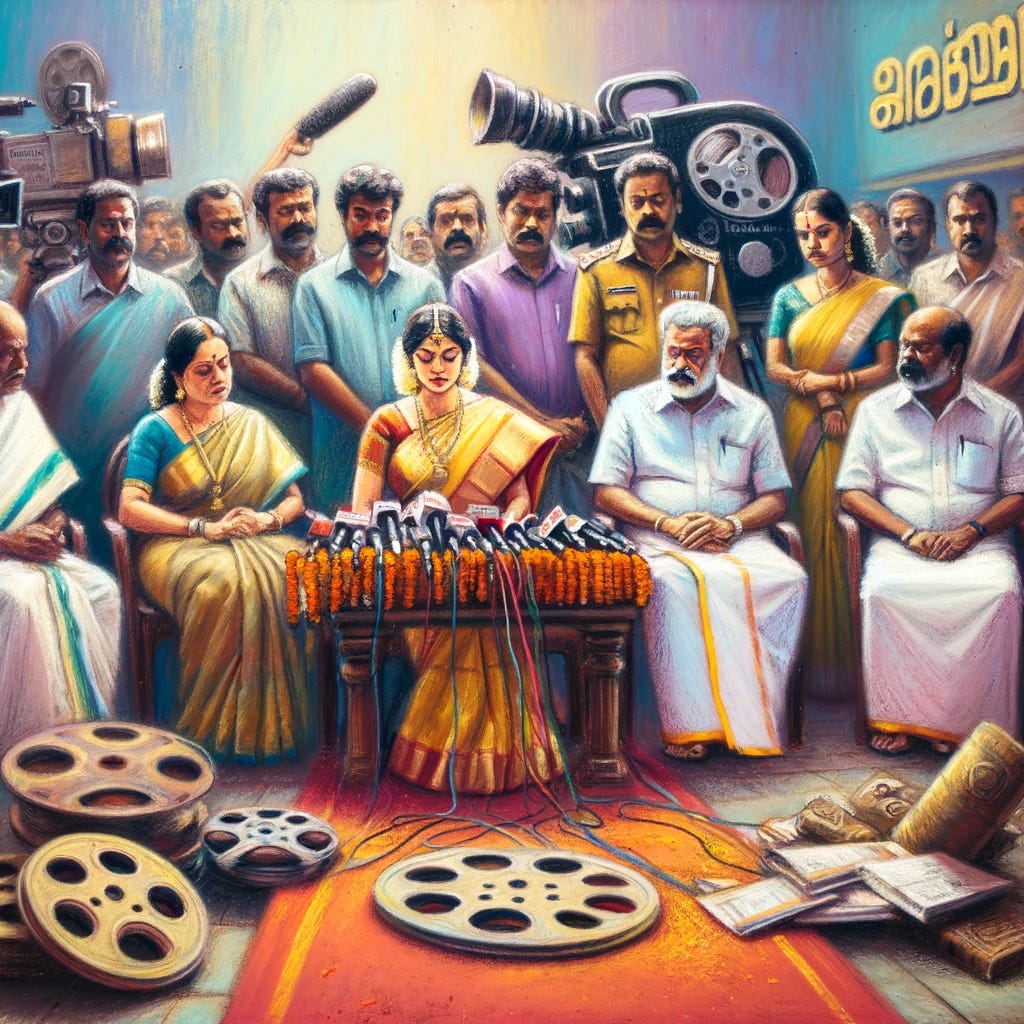Kerala Government Releases Much-Awaited Hema Commission Report
Unveiling the "Casting Couch": The Open-Secret Practice in the Malayalam Film Industry.

Kerala Government Releases Hema Commission Report
The Kerala Government today made public the much-anticipated Hema Commission Report, shedding light on the serious challenges— including sexual harassment, exploitation and discrimination— faced by women in the Malayalam film industry. Established in 2017, the Justice Hema Commission was tasked with investigating gender-related issues within the industry, following a series of troubling incidents that brought these issues to the forefront.
As the nation grapples with the shocking murder of a young female doctor in a leading Kolkata Medical College, this report serves as a stark reminder of the deep-rooted gender inequalities in Indian society—a society that reveres numerous female goddesses and frequently touts the rhetoric of women’s empowerment (Nari Shakti) across the political spectrum. This report is a clarion call for urgent corrective measures, not just within the Kerala film industry but also in Bollywood and other sectors like aviation, hospitality, media, and healthcare, where increasing numbers of young, highly qualified women are employed.
Widespread Exploitation and Harassment in Malayalam Cinema
The Justice Hema Committee report has exposed the deep-seated exploitation and discrimination faced by women in the Malayalam film industry. Incidents involving "highly placed men in cinema" reveal the prevalence of sexual harassment, with many industry icons "crumbling" as testimonies came forward. Fear of being labeled a "problem maker" has kept many women silent, as speaking out often leads to blacklisting.
Powerful Male Lobby Controls the Industry
The report also highlights the existence of a "powerful lobby" within the industry, described by some as a "mafia," that has the ability to ban actors, producers, and directors, further maintaining a culture of fear and control. The findings emphasize the urgent need for a legally constituted authority to address the grievances of women, as current systems fail to protect them.
Background and Formation
The Justice Hema Commission was formed in response to a petition by the Women in Cinema Collective (WCC) after the 2017 actress assault case involving actor Dileep. This high-profile case highlighted the deep-rooted issues of sexual harassment and gender inequality in Malayalam cinema, prompting the Kerala Government to take action.
Composition and Terms of Reference
Headed by Justice K Hema, a retired Kerala High Court judge, the commission included notable members such as actor Sharada and former lady IAS officer K B Vatsala Kumari. Their mandate was to examine the working conditions of women in the Malayalam film industry and propose solutions to address the gender-related challenges they face.
Report Submission and Delayed Release
The Commission completed its work and submitted the report on December 31, 2019. Despite the urgency of the issues it addressed, the report was withheld from the public for nearly five years due to concerns about the sensitive nature of its contents and pending litigation.
Court Intervention and Public Release
The Kerala High Court recently played a pivotal role in the report's release by dismissing an appeal by actor Ranjini, who sought to prevent its publication. Following the High Court's decision, the Kerala Government released a 233-page version of the report on August 19, 2024. This version excluded, or redacted, sections deemed too sensitive or potentially damaging to individuals' privacy.
Major Findings and Recommendations
The Hema Commission Report unveils several alarming realities within the Malayalam film industry:
Casting Couch and Sexual Exploitation: The report documents the prevalence of the casting couch, where women are coerced into providing sexual favours in exchange for job opportunities.
All-Male Power Group: The existence of a powerful group of 15 male industry figures who dominate casting decisions and control careers was exposed.
Unsafe Working Conditions: The report highlights that women frequently feel unsafe on sets, often bringing family members for protection.
Lack of Facilities: There is a notable absence of basic facilities for women, including proper toilets on film sets.
Pay Disparities: The report identifies significant pay inequality, with female artists earning considerably less than their male counterparts.
Harassment and Abuse: The report details harrowing instances of sexual harassment, including incidents where intoxicated men tried to force their way into female artists' hotel rooms.
In response to these findings, the commission proposed several key recommendations:
Enacting laws to address issues faced by women in the industry.
Establishing a tribunal to handle disputes within the industry.
Excluding individuals accused of serious crimes from the industry.
Mandating the provision of proper facilities on film sets.
Banning the consumption of alcohol and drugs on film sets.
Ensuring equal pay for female artists.
Reactions and Future Outlook
The release of the report has ignited discussions across the Malayalam film industry and political circles. Actress Revathy, a prominent member of the Women in Cinema Collective, expressed satisfaction with the report's release and stressed the importance of protecting future generations from such exploitation.
The implementation of the report's recommendations is now crucial to improving the working conditions for women in the Malayalam film industry. This will likely require legislative changes, industry-wide reforms, and a cultural shift within the film community.
The release of the Hema Commission Report marks a pivotal step in addressing the entrenched issues of gender inequality and harassment in Malayalam cinema. In light of the national outrage over the horrific rape and murder in Kolkata, there is renewed hope that this report will not only garner the attention it deserves but also spur decisive action. The successful implementation of its recommendations could set a powerful precedent, leading to a safer and more equitable environment, not just within the film industry but across various sectors where women are increasingly employed.
Epilogue
What happened to the assault case versus the Malayalam Film Star Dileep?
Dileep's Legal Proceedings in the Actress Assault Case
Dileep, a prominent actor in the Malayalam film industry, was arrested on July 10, 2017, and named as the mastermind behind the assault on a fellow actress, making him the eighth accused in the case. He spent 85 days in jail before being granted bail on October 3, 2017, and was subsequently expelled from the Association of Malayalam Movie Artistes (AMMA) due to public outrage. Despite multiple attempts to access the video evidence of the assault to claim he was framed, his requests were consistently denied by the courts, including appeals to the High Court and Supreme Court.
Ongoing Legal Battle and Controversies
The case remains inconclusive, with Dileep maintaining his innocence while facing continued legal proceedings. In 2022, he sought to have the FIR quashed or the investigation transferred to the CBI, but the case is still active. Recently, legal battles have intensified over witness statements and allegations of evidence tampering, specifically related to a memory card containing visuals of the crime. The long-running case has become one of Kerala's most high-profile legal sagas, with Dileep still at the center of the controversy.
Impact of the Report
Now available in the public domain, this report is likely to serve as a significant tool for both the prosecution and the defence, potentially impacting the ongoing proceedings, which are already considerably delayed. Its findings may introduce new angles and arguments, further complicating and prolonging the legal battle.
Citations
Here are the important citations with brief descriptions:





